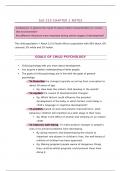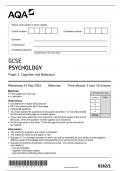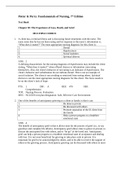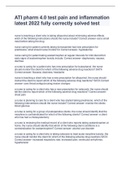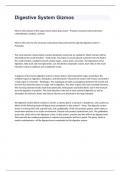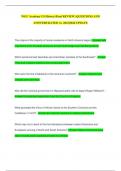Summary
Summary SLK 210 Chapter 1 Notes- Basic concepts of child and adolescent Development
This chapter summary includes a detailed review of the prescribed textbook of the University Of Pretoria in SLK 210. This summary includes all sections of the chapter, excluding the Research in child development.
[Show more]
